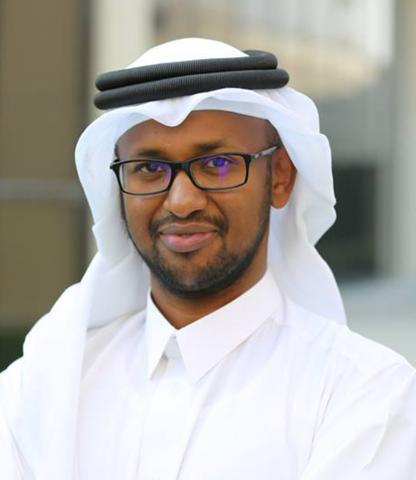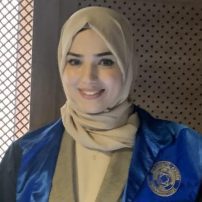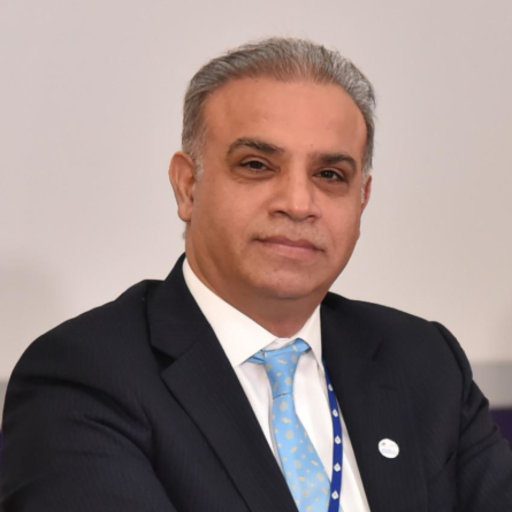AI and Policy Making in the MENA Region:
Impact and Risks
June 5, 2023
Summary
With the emergence of OpenAI’s ChatGPT and Google’s Bard, the global conversation around artificial intelligence has become critical to the futures of a multitude of fields, including those of international politics. In collaboration with the Middle East Council on Global Affairs (ME Council), the Gulf Studies Center hosted a panel discussion titled “AI and Policy Making in the MENA Region: Impact and Risks” on June 5, 2023. The discussion was moderated by Ahmet Aysan, nonresident senior fellow at the ME Council. Three expert panelists contributed their perspectives – Aimen Erbad, associate professor and head of the Information and Computing Technology Department at Hamad Bin Khalifah University; Mahjoob Zweiri, director of the Gulf Studies Center at Qatar University; and Nour Naim, founder and executive director of AI Minds Academy in Türkiye. Throughout the webinar, the panelists shed light on the implications and potential risks associated with the use of artificial intelligence (AI) in policymaking, particularly in the context of the Middle East and North Africa (MENA) region.
Aysan introduced the day’s event with a recognition of the increasing significance of AI within political research and decision-making processes. He identified some important points that researchers and policymakers need to consider when implementing such technologies in their work, such as AI biases, methodology of use, the extent to which the field should be using AI at all, and AI’s overall effect on policymaking.
Erbad then elaborated on the question of the risks associated with AI that policymakers and researchers would have to keep in mind as they integrate AI into their work. He pointed out that there are still many uncertainties when using information generated by AI. These include issues of copyright and access to information, the underdeveloped Arabic language capacity of current AI technologies, and the danger of misinformation.
Zweiri then pragmatically considered the possibilities of utilizing AI as a policy advisor in the Middle East, keeping in mind the risks mentioned by Erbad and his own experience as a regional expert. Zweiri spoke of the core business of policymaking as a process of extensive reading, pattern identification, and consequent presentation of potential solutions for existing problems. AI’s potential as a tool to optimize this process would have to contend with limitations specific to the Middle Eastern context. For example, data that AI learns on the region may be dependent on sources that do not include perspectives from the Global South.
The conversation then moved to Naim, who discussed the main aspects of her work on AI ethics and accessibility. First, she spoke about how marginalized groups interact with AI, referring to her work managing AI literacy training programs in refugee camps in Türkiye. Second, she spoke about the absence of Arabic language content and Arabic voices in AI spaces, and how that is reflected in policymaking practices. Third, she discussed the development of rules and regulations surrounding the use of AI worldwide. For example, the European Union is active in developing guidelines to protect privacy and prevent bias, racism, and violence. However, she said, the MENA region is disregarded in these guideline development efforts, regardless of AI technology’s global influence. Finally, she talked about the ways states in the MENA region could address the knowledge and language gaps in the use and development of AI. She suggested that the Qatar World Summit next year should be conducted completely in Arabic because it would draw attention to the lack of Arabic language content and encourage increasing support for Arabic language research publication. She also emphasized that the training of AI should represent a much wider array of experience across cultures and languages than it currently does.
With Naim’s words in mind, Aysan asked Erbad what steps policymakers should take to maintain an effective labor force in a constantly evolving tech landscape. He inquired about possible frameworks for partnerships between educational institutions and policymakers to deal with existing knowledge gaps. Erbad recalled that, after it became recognized as a global issue ten years ago, cybersecurity literacy was introduced into curricula at universities and even K-12 levels. Similarly, it is now imperative for governments and educational institutions to introduce AI outreach and training programs for all disciplines to raise awareness of the social implications of AI and the ethics surrounding it. Erbad additionally recognized the multitude of potential opportunities that AI technological developments are introducing to solving regional challenges in the education sector.
Lastly, Zweiri concluded the panel by giving his recommendations to think tanks and policymakers in MENA countries regarding AI. He spoke about adapting to job market shifts by changing educational policies in line with scientific developments, thus facilitating the transition from jobs that will be made redundant to the plurality of new roles that will be created as a result of the proliferation of AI technologies. He envisioned a future where AI is a tool that enhances, rather than replaces, human contributions to progress and innovation.
Speakers

Aiman Erbad
Associate Professor and Head of the Information and Computing Technology Department, Hamad Bin Khalifa University

Nour Naim
Founder and Executive Director, AI Minds Academy, Türkiye

